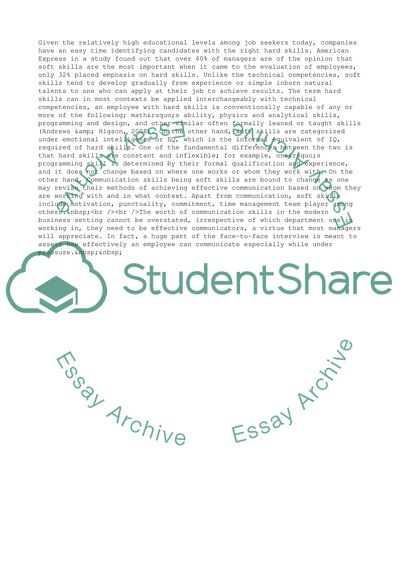Cite this document
(Soft Employee Skills Coursework Example | Topics and Well Written Essays - 2000 words, n.d.)
Soft Employee Skills Coursework Example | Topics and Well Written Essays - 2000 words. https://studentshare.org/management/1836018-title-apart-from-hard-skills-employers-consistently-want-graduates-to-have-better-soft-skills-assess-this-statement-in-relation-to-your-learning-on-transferable-management-and-study-skills
Soft Employee Skills Coursework Example | Topics and Well Written Essays - 2000 words. https://studentshare.org/management/1836018-title-apart-from-hard-skills-employers-consistently-want-graduates-to-have-better-soft-skills-assess-this-statement-in-relation-to-your-learning-on-transferable-management-and-study-skills
(Soft Employee Skills Coursework Example | Topics and Well Written Essays - 2000 Words)
Soft Employee Skills Coursework Example | Topics and Well Written Essays - 2000 Words. https://studentshare.org/management/1836018-title-apart-from-hard-skills-employers-consistently-want-graduates-to-have-better-soft-skills-assess-this-statement-in-relation-to-your-learning-on-transferable-management-and-study-skills.
Soft Employee Skills Coursework Example | Topics and Well Written Essays - 2000 Words. https://studentshare.org/management/1836018-title-apart-from-hard-skills-employers-consistently-want-graduates-to-have-better-soft-skills-assess-this-statement-in-relation-to-your-learning-on-transferable-management-and-study-skills.
“Soft Employee Skills Coursework Example | Topics and Well Written Essays - 2000 Words”. https://studentshare.org/management/1836018-title-apart-from-hard-skills-employers-consistently-want-graduates-to-have-better-soft-skills-assess-this-statement-in-relation-to-your-learning-on-transferable-management-and-study-skills.


